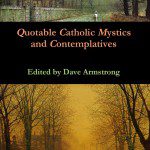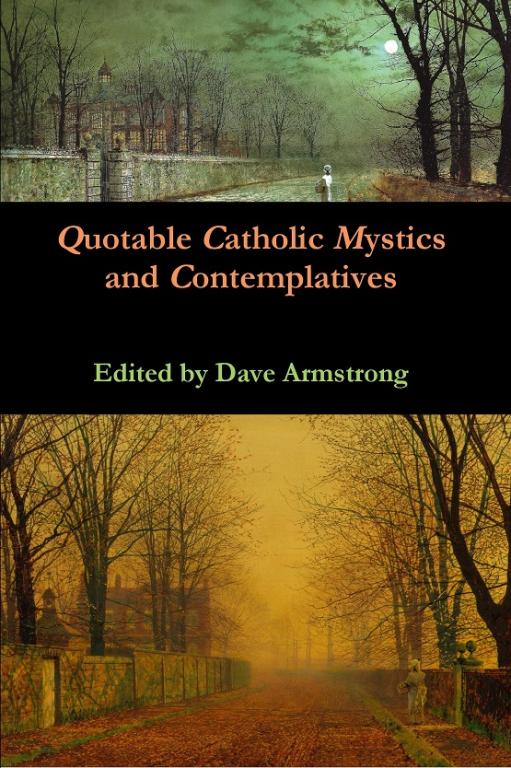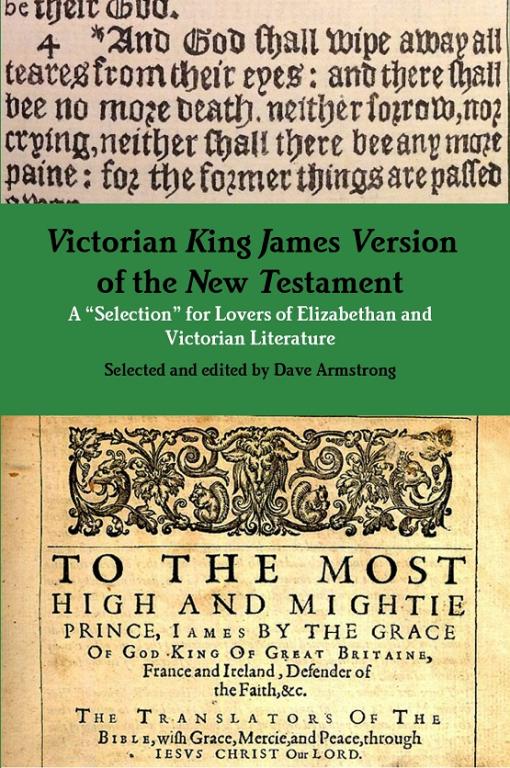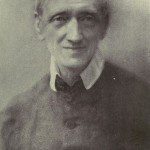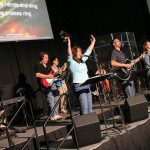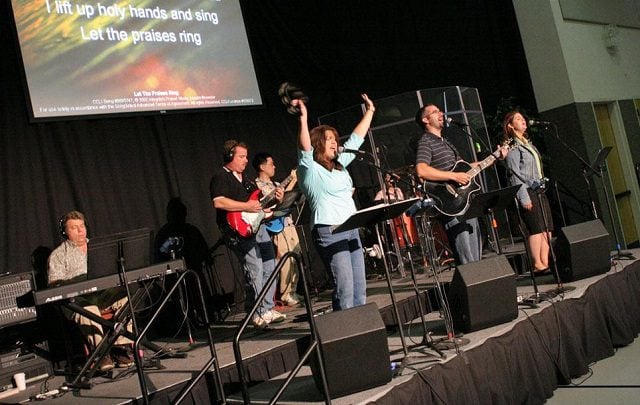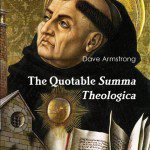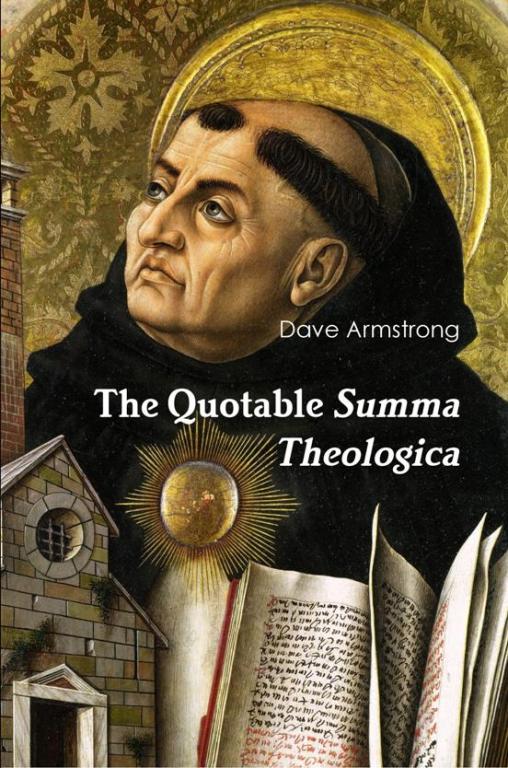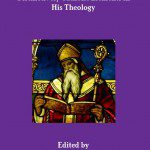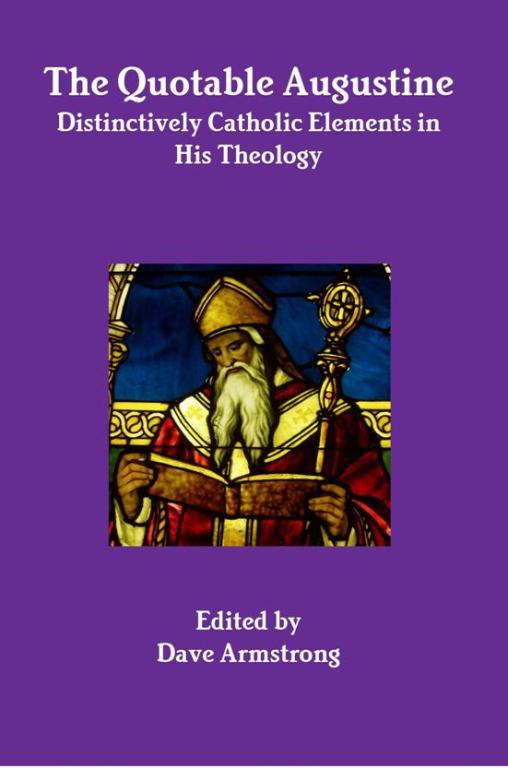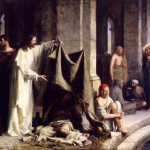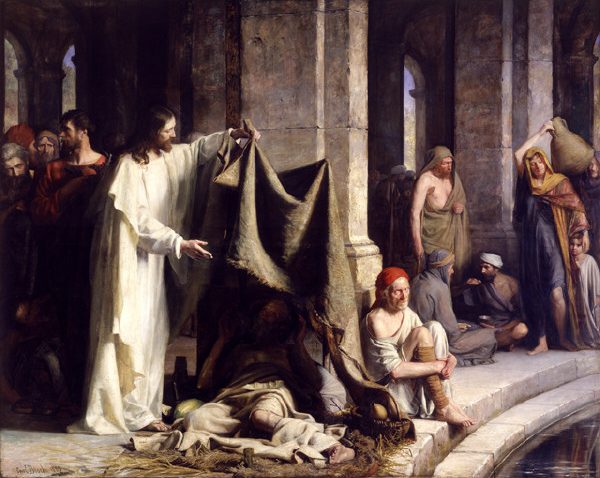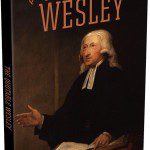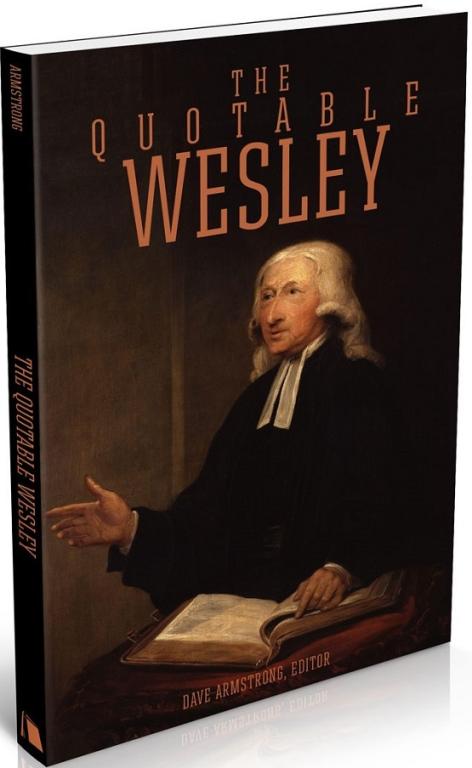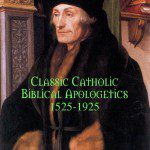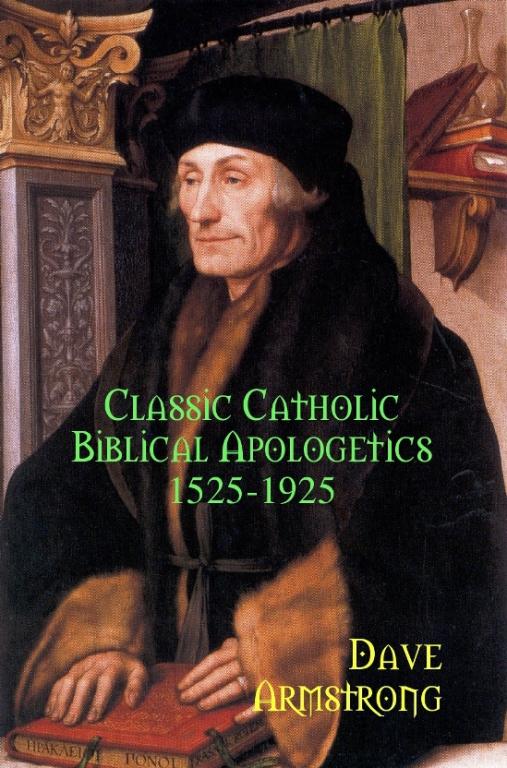8 I have baptized you with water, but he will baptize you with the Holy Spirit.
18 At once they left their nets and followed him.
30 Now Simon’s mother-in-law was lying ill with fever, and they at once told Jesus about her.
31 And he came and took her by the hand, and lifted her up; and immediately the fever left her, and she began to wait upon them.
41 Moved with compassion, Jesus put forth his hand and touched him, saying as he did so, I am willing; become clean.
44 Be careful not to say anything to any one; but go and show yourself to the priest, and make the offerings for your cleansing directed by Moses, as evidence of your cure.
45 But he went off and proceeded to proclaim it aloud and spread news of the affair both far and wide. The result was that Jesus could no longer enter any town openly; he stayed outside in lonely places, and people came to him from every quarter.
And again he entered into Capernaum after some days, and it was heard that he was in the house;
11 To you I say, Get up, take up your mat, and return to your home.
19 Jesus answered, Can the bridegroom’s friends fast, while the bridegroom is with them? As long as they have the bridegroom with them, they cannot fast.
22 And no one pours new wine into old wineskins. Otherwise the wine would burst the skins, and both wine and skins would be lost. New wine needs fresh skins!
24 So the Pharisees said to him, Look! why are they doing what on the Sabbath is unlawful?
25 And he said to them, Have you never read what David did, when he had need and was hungry himself, and they that were with him?
26 He went into the house of God, under Abiathar the high priest, and ate the loaves of the Presence which no one except the priests is allowed to eat, and also shared them with his followers.
27 And he said unto them, The sabbath was made for man, and not man for the sabbath:
28 Therefore the Son of man is Lord also of the sabbath.
And he entered again into the synagogue, and there was a man there who had a withered hand.
10 For he had cured many of them, and so people kept crowding upon him, that all who were afflicted might touch him.
11 And whenever the unclean spirits saw him they fell down before him, screaming, You are the Son of God!
14 And he appointed twelve, that they might be with him, and that he might send them out to preach,
15 and to have power to heal sicknesses, and to cast out demons.
19 and Judas Iscariot, the man who also betrayed him.
22 And the scribes who had come down from Jerusalem said, He has Beelzebub, and, It is by the prince of demons that he casts out demons.
23 And after he had called them together, he said to them in parables, How can Satan cast out Satan?
24 And if a kingdom be divided against itself, that kingdom cannot stand.
26 And if Satan rise up against himself, and be divided, he cannot stand, but has an end.
27 No man can enter into the house of a strong man and rob him of his goods, unless he first bind the strong man, and then shall he plunder his house.
28 Amen I say to you, that all sins shall be forgiven unto the sons of men, and the blasphemies wherewith they shall blaspheme:
29 But he that shall blaspheme against the Holy Spirit, shall never have forgiveness, but shall be guilty of an everlasting sin.
32 There was a crowd sitting round Jesus, and some of them said to him, Look, your mother and your brothers are outside, asking for you.
34 And looking round about on them who sat about him, he said, Behold my mother and my brethren.
2 And he taught them many things in parables, and said unto them in his doctrine:
22 For there is nothing hid, which shall not be made manifest: neither was it made secret, but that it may at last come to light.
24 And he said unto them, Take heed what you hear: with what measure you shall mete, it shall be measured to you: and unto you that hear shall more be given.
36 So, leaving the crowd behind, they took him with them, just as he was, in the boat; and there were other boats with him.
37 And there arose a great storm of wind, and the waves beat into the ship, so that the ship was filled.
38 But He Himself was in the stern asleep, with His head on the cushion: so they woke Him. They cried, Teacher, is it nothing to you that we are drowning?
39 And he arose, and rebuked the wind, and said unto the sea, Peace, be still. And the wind ceased, and there was a great calm.
41 And they feared exceedingly, and said one to another, What manner of man is this, that even the wind and the sea obey him?
CHAPTER 5
And they came over unto the other side of the sea, into the country of the Gadarenes.
2 And as soon as he stepped out of the boat a man from the tombs came to meet him, a man with an unclean spirit
3 who had his dwelling in the tombs, and no man now could bind him, not even with chains.
4 For having been often bound with fetters and chains, he had burst the chains, and broken the fetters in pieces, and no one could tame him.
5 And always, night and day, he was in the mountains, and in the tombs, crying, and cutting himself with stones.
6 But when he saw Jesus afar off, he ran and worshipped him,
7 shrieking aloud, Jesus, son of God most High, what business have you with me? By God, I adjure you, do not torment me.
8 (For he had said, Come out of the man, you unclean spirit.)
9 And he was questioning him, What is your name? and he answered, saying, Legion is my name, because we are many.
10 And they begged him earnestly not to send them out of the country.
11 And there was there near the mountain a great herd of swine, feeding.
12 And the spirits besought him, saying: Send us into the swine, that we may enter into them.
13 And Jesus immediately gave them leave. And the unclean spirits going out, entered into the swine: and the herd with great violence was carried headlong into the sea, being about two thousand, and were drowned in the sea.
14 The herdsmen fled and reported it to the town and the hamlets. So the people came to see what had happened,
15 and when they reached Jesus they saw the demoniac sitting down, clothed and in his right mind — the man who had been possessed by Legion, and they were afraid.
16 Then those who had seen it related to them all that had happened to the possessed man, as well as about the swine;
17 and they began to call upon him to go away from their borders.
18 And when he went up into the ship, the demoniac began to beseech him that he might be with him;
19 but he said, Go home to your own people, and report to them all the Lord has done for you and how he has had compassion on you.
20 So he went off and began to proclaim throughout Decapolis all that Jesus had done for him; and all were astonished.
21 Now when Jesus had crossed in the boat to the other side again, a large crowd gathered round him; so he remained beside the sea.
22 A president of the synagogue named Jairus came up, and on catching sight of him fell at his feet
23 with earnest entreaties, saying, My little daughter is at the point of death: I pray you come and lay your hands upon her, that she may recover and live.
24 And Jesus went with him, and a great multitude followed him, and they pressed round him.
25 And there was a woman who had had a hemorrhage for twelve years —
26 she had suffered a great deal under a number of doctors and had spent all her means but was none the better; but rather worse.
27 Hearing about Jesus, got behind him in the crowd, and touched his robe;
28 for she said, If I shall touch but his garment, I shall be whole.
29 And straightway the fountain of her blood was dried up; and she felt in her body that she was healed of that plague.
30 And Jesus, immediately knowing in himself that virtue had gone out of him, turned to the multitude, and said, Who touched my garments?
31 His disciples said to him, You see the crowd are pressing round you, and yet you ask, Who touched me?
32 But he kept looking round to see who had done it,
33 and the woman, knowing what had happened to her, came forward in fear and trembling and fell down before him, telling him all the truth.
34 And he said to her, Daughter, your faith has made you well; go in peace and be free from your disease.
35 He was still speaking when a message came from the house of the synagogue-president, Your daughter is dead. Why trouble the teacher any further?
36 But Jesus, overhearing what they were saying, said to the ruler of the synagogue, Be not afraid; only believe.
37 And he admitted not any man to follow him, but Peter, and James, and John the brother of James.
38 And they reached the house of the ruler of the synagogue; and he saw a tumult, and people weeping and wailing greatly,
39 and on entering he asked them, Why this confusion and weeping? The child is not dead but asleep.
40 And they laughed him to scorn. But he put them all outside and taking the father and mother of the child as well as his companions he went in to where the child was lying;
41 then he took the child’s hand and said to her, Talitha cumi — which may be translated, Little girl, rise, I tell you.
42 The girl got up at once and began to walk (she was twelve years old); and at once they were lost in utter amazement.
43 And he charged them strictly that no man should know it: and commanded that something should be given her to eat.
CHAPTER 6
And going out from thence, he went into his own country; and his disciples followed him.
2 And when the sabbath day was come, he began to teach in the synagogue: and many hearing him were astonished, saying, Where did he get all this? and what wisdom is this that is given to him, that even such mighty works are wrought by his hands?
3 Is not this the carpenter, the son of Mary, the brother of James, and Joses, and of Judas, and Simon? and are not his sisters here with us? And they were offended at him.
4 And Jesus said to them: A prophet is not without honor, but in his own country, and in his own house, and among his own kindred.
5 And he could not do any miracles there, save that he laid his hands upon a few that were sick, and healed them.
6 And he marvelled because of their unbelief. And he went round about the villages, teaching.
7
And he called unto him the twelve, and began to send them forth two by two; and gave them power over unclean spirits; 8 And commanded them that they should take nothing for their journey, save a staff only; no bag, no bread, no money in their pockets:
9 But to be shod with sandals, and that they should not put on two coats.
10 And he said to them: Wheresoever you shall enter into an house, there abide till you depart from that place.
11 And whosoever shall not receive you, nor hear you; going forth from thence, shake off the dust from your feet for a testimony against them.
12 And they went out, and preached that men should repent.
13
And they cast out many demons, and anointed with oil many that were sick, and healed them. 14 Now this came to the hearing of king Herod, for the name of Jesus had become well known; people said, John the Baptist has risen from the dead, that is why miraculous powers are working through him;
15 others said, It is Elijah, others again, It is a prophet, like one of the old prophets.
16 But when Herod heard thereof, he said, It is John, whom I beheaded: he is risen from the dead.
17 For Herod himself had sent forth and laid hold upon John, and bound him in prison for the sake of Herodias the wife of Philip his brother, because he had married her.
18 John had told Herod, You have no right to your brother’s wife.
19 Now Herodias laid snares for him: and was desirous to put him to death, and could not.
20 For Herod feared John, knowing him to be a just and holy man: and kept him, and when he heard him, did many things: and he heard him willingly.
21 And when a convenient day was come, Herod made a supper for his birthday, for the princes, and tribunes, and chief men of Galilee,
22 at which Herodias’s own daughter came in and danced, and so charmed Herod and his guests that he said to her, Ask me for anything you please, and I will give it to you.
23 He even swore to her, Whatever you ask me for I will give you, up to half my kingdom.
24 And she went forth, and said unto her mother, What shall I ask? And she said, The head of John the Baptist.
25 Then she hurried in at once and asked the king, saying, I want you to give me this very moment the head of John the Baptist on a dish.
26 The king was much distressed; yet, on account of his oath and of the guests at his table, he would not reject her.
27 But sending an executioner, he commanded that his head should be brought in a dish. And he beheaded him in the prison,
28 brought his head on a dish, and gave it to the girl; and the girl gave it to her mother.
29 And when his disciples heard of it, they came and took up his corpse, and laid it in a tomb.
30 And the apostles gathered themselves together unto Jesus, and told him all things, both what they had done, and what they had taught.
31 And he said to them: Come apart into a desert place, and rest a little. For there were many coming and going: and they had not so much as time to eat.
32 And going up into a ship, they went into a desert place apart.
33 However a number of people who saw them start and recognized them, got to the place before them by hurrying there on foot from all the towns.
34 And Jesus going out saw a great multitude: and he had compassion on them, because they were as sheep not having a shepherd, and he began to teach them many things.
35 And when the day was now far spent, his disciples came to him, saying: This is a desert place, and the hour is now past:
36 send them off to the farms and villages round about to buy some food for themselves.
37 He replied, Give them some food, yourselves. They said, Are we to go and buy ten pounds’ worth of food and give them that to eat?
38 He said, How many loaves have you got? Go and see. When they found out they told him, Five, and two fish.
39 Then he gave orders that they were to make all the people lie down in parties on the green grass;
40 so they arranged themselves in groups of a hundred and of fifty;
41 And when he had taken the five loaves, and the two fishes: looking up to heaven, he blessed, and broke the loaves, and gave to his disciples to set before them: and the two fishes he divided among them all.
42 And they all did eat, and had their fill.
43 And they took up twelve baskets full of the fragments, and of the fishes.
44 The number of men who ate the loaves was five thousand.
45 And straightway he constrained his disciples to get into the boat, and to go to the other side before to Bethsaida, while he sent away the people.
46 And when he had dismissed them, he went up to the mountain to pray.
47 And when it was late, the boat was in the midst of the sea, and himself alone on the land,
48 but when he saw them buffeted as they rowed (for the wind was against them) he went to them about the fourth watch of the night walking on the sea. He would have passed them by,
49 but when they saw him walking upon the sea, they supposed it had been a spirit, and cried out.
50 For they all saw him, and were troubled. And immediately he talked with them, and said to them, Be of good cheer: it is I; be not afraid.
51 And he got into the boat beside them, and the wind dropped. They were utterly astounded,
52 for they understood not concerning the loaves; for their heart was blinded.
53 And when they had passed over, they came into the land of Gennesaret, and drew to the shore.
54 And when they had disembarked, the people at once recognized Jesus;
55 And running through that whole country, they began to carry about in beds those that were sick, where they heard he was.
56 And whithersoever he entered, into towns or into villages or cities, they laid the sick in the streets, and besought him that they might touch but the hem of his garment: and as many as touched him were made whole.
CHAPTER 7
And there assembled together unto him the Pharisees and some of the scribes, coming from Jerusalem.
2 And when they had seen some of his disciples eat bread with common, that is, with unwashed hands, they found fault.
3 For the Pharisees, and all the Jews eat not without often washing their hands, holding the tradition of the ancients:
4 And when they come from the market, unless they be washed, they eat not: and many other things there are that have been delivered to them to observe, the washings of cups and of pots, and of brazen vessels, and of beds.
5 Then the Pharisees and scribes put this question to him, Why do your disciples not follow the tradition of the elders? Why do they take their food with common hands?
6 He answered and said unto them, Well hath Isaiah prophesied of you hypocrites, as it is written, This people honoureth me with their lips, but their heart is far from me.
7 Howbeit in vain do they worship me, teaching for doctrines the commandments of men.[Is 29:13]
8 For leaving the commandment of God, you hold the tradition of men, the washing of pots and of cups: and many other things you do like to these.
9 And he said to them: Well do you make void the commandment of God, that you may keep your own tradition.
10 For Moses said, Honour thy father and thy mother; [Ex 20:12; Dt 5:16] and, Whoso curseth father or mother, let him die the death: [Ex 21:17; Lev 20:9]
11 But you say that if a man tells his father or mother, This money might have been at your service, but it is Corban (that is, dedicated to God),
12 he is exempt, so you hold, from doing anything for his father or mother,
13 making the word of God of none effect through your tradition, which you have delivered: and many such like things you do.
14 And when he had called all the people unto him, he said unto them, Hearken unto me every one of you, and understand:
15 Nothing outside a man can defile him by entering him; it is what comes from him that defiles him.
16 If any man have ears to hear, let him hear.
17 And when he was entered into the house from the people, his disciples asked him concerning the parable.
18 And he said to them, So are you also without knowledge? Understand you not that every thing from without, entering into a man cannot defile him?
19 It does not enter his heart but his belly and passes from that into the drain (thus he pronounced all food clean).
20 But he said that the things which come out from a man, they defile a man.
21 For from within, out of the heart of men, proceed evil thoughts, adulteries, fornications, murders,
22 Thefts, covetousness, wickedness, deceit, lasciviousness, an evil eye, blasphemy, pride, foolishness:
23 All these evil things come from within, and defile the man.
24 Leaving there, he went away to the territory of Tyre and Sidon. He went into a house and wished no one to know of it, but he could not escape notice;
25 For a certain woman, whose young daughter had an unclean spirit, heard of him, and came and fell at his feet:
26 The woman was a Greek, a Syrophenician by nation; and she besought him that he would cast forth the demon out of her daughter.
27 But Jesus said unto her, Let the children first be filled: for it is not good to take the children’s bread, and to cast it unto the dogs.
28 And she answered and said unto him, Yes, Lord: yet the dogs under the table eat of the children’s crumbs.
29 And he said to her, Because of this word go; the demon has gone forth out of your daughter;
30 so she went home and found the child lying in bed and the demon gone from her.
31 He left the territory of Tyre again and passed through Sidon to the sea of Galilee, crossing the territory of Decapolis.
32 And a deaf man who stammered was brought to him, with the request that he would lay his hand on him.
33 So taking him aside from the crowd by himself, he put his fingers into the man’s ears, touched his tongue with saliva,
34 and looking up to heaven with a deep sigh he said to him, Ephphatha (which means, Be opened).
35 And the man’s ears were opened, and his tongue became untied, and he began to speak perfectly.
36 Jesus forbade them to tell anyone about it, but the more he forbade them the more eagerly they made it public;
37 they were astounded in the extreme, saying, How splendidly he has done everything! He actually makes the deaf hear and the dumb speak!
CHAPTER 8
In those days, when a large crowd had again gathered and when they had nothing to eat, he called the disciples and said to them,
2 I have compassion on the multitude, because they have now been with me three days, and have nothing to eat:
3 And if I send them away fasting to their own houses, they will faint by the way: for some of them came from afar off.
4 And his disciples answered him, From whence can a man satisfy these men with bread here in the wilderness?
5 And he asked them, How many loaves have you? And they said, Seven.
6 And he commanded the people to sit down on the ground: and he took the seven loaves, and gave thanks, and broke, and gave to his disciples to set before them; and they set them before the people.
7 And as they also had a few small fish, he blessed them too and told the disciples to serve them out as well.
8 So the people ate and were satisfied, and they picked up seven baskets of fragments which were left over.
9 There were about four thousand of them. Then he sent them away,
10 and straightway he entered into a boat with his disciples, and came into the parts of Dalmanutha.
11 And the Pharisees came forth, and began to question with him, seeking of him a sign from heaven, tempting him.
12 And sighing deeply in spirit, he said: Why does this generation seek a sign? Verily, I say to you, a sign shall not be given to this generation.
13 So he left them to themselves, and, getting into the boat again, went away to the opposite shore.
14 Now the disciples had forgotten to take any bread with them, one loaf being all that they had in the boat.
15 And he charged them, saying, Take heed, beware of the leaven of the Pharisees, and of the leaven of Herod.
16 And they reasoned among themselves, saying, It is because we have no bread.
17 He noted this and said to them, Why do you argue you have no bread? Do you not see, do you not understand, even yet? Are your minds still so slow of comprehension?
18 Having eyes, see you not? and having ears, hear you not? and do you not remember?
19 Do you not remember how many baskets full of fragments you picked up when I broke the five loaves for the five thousand? They said, Twelve.
20 And how many basketfuls of fragments did you pick up when I broke the seven loaves for the four thousand? They said, Seven.
21 And he said to them: How do you not yet understand?
22 Then they reached Bethsaida. A blind man was brought to him with the request that he would touch him.
23 Taking the blind man’s hand, Jesus led him to the outskirts of the village, and, when he had put saliva on the man’s eyes, he placed his hands on him, and asked him: Do you see anything?
24 And he looked up, and said, I see men as trees, walking.
25 After that again he laid his hands upon his eyes, and he began to see, and was restored, so that he saw all things clearly.
26 And he sent him away to his house, saying, Neither go into the town, nor tell it to any in the town.
27 And Jesus went out, and his disciples, into the towns of Caesarea Philippi: and by the way he asked his disciples, saying unto them, Whom do men say that I am?
28 And they answered, John the Baptist: but some say, Elijah; and others, One of the prophets.
29 So he inquired of them, And who do you say I am? Peter replied, You are the Christ.
30 Then he forbade them to tell anyone about him.
31 And he began to teach them, that the Son of man must suffer many things, and be rejected of the elders, and of the chief priests, and scribes, and be killed, and after three days rise again.
32 This statement he made openly. But Peter took Jesus aside, and began to rebuke him.
33 Jesus, however, turning round and seeing his disciples, rebuked Peter. He exclaimed, Out of my sight, Satan! For you look at things, not as God does, but as man does.
34 And when he had called the people unto him with his disciples also, he said unto them, Whosoever will come after me, let him deny himself, and take up his cross, and follow me.
35 For whosoever will save his life shall lose it; but whosoever shall lose his life for my sake and the gospel’s, shall save it.
36 For what shall it profit a man, if he shall gain the whole world, and lose his own soul?
37 Or what shall a man give in exchange for his soul?
38 Whosoever therefore shall be ashamed of me and of my words in this adulterous and sinful generation; of him also shall the Son of man be ashamed, when he shall come in the glory of his Father with the holy angels.
CHAPTER 9
And he said unto them, Verily I say unto you, That there are some of those standing here who shall not taste of death, till they have seen the kingdom of God come with power.
2 Six days afterwards Jesus took Peter, James and John, and led them up a high hill by themselves alone; in their presence he was transfigured,
3 and his clothes glistened white, vivid white, such as no fuller on earth could bleach them.
4 And there appeared unto them Elijah with Moses: and they were talking with Jesus.
5 And Peter answered and said to Jesus, Master, it is good for us to be here: and let us make three tabernacles; one for you, and one for Moses, and one for Elijah,
6 for he did not know what to say, they were so terrified.
7 And there was a cloud that overshadowed them: and a voice came out of the cloud, saying, This is my beloved Son: hear him.
8 And suddenly, when they had looked round about, they saw no man any more, save Jesus only with themselves.
9 And as they came down from the mountain, he charged them not to tell any man what things they had seen, till the Son of man shall be risen again from the dead.
10 And they kept the word to themselves; questioning together what that should mean, when he shall be risen from the dead.
11 And they asked him, saying: Why then do the scribes say that Elijah must come first?
12 And he answering said to them, Elijah does indeed come first and re-establish everything; and does not Scripture speak, with regard to the Son of Man, of his undergoing much suffering and being utterly despised?
13 But I tell you that Elijah has come, and people have treated him just as they pleased, as Scripture says of him.
14 And coming to his disciples, he saw a great multitude about them, and the scribes disputing with them.
15 And presently all the people seeing Jesus, were astonished and struck with fear; and running to him, they saluted him.
16 Jesus asked the scribes, What are you discussing with them?
17 A man from the crowd answered him, Teacher, I brought my son to you; he has a dumb spirit,
18 and whenever it seizes him it throws him down, and he foams at the mouth, grinds his teeth, and turns rigid; I told your disciples to cast it out, but they could not.
19 He answered them, O faithless generation, how long must I still be with you? how long have I to bear with you? Bring him to me.
20 So they brought the boy to him, and when the spirit saw Jesus it at once convulsed the boy; he fell on the ground and rolled about, foaming at the mouth.
21 Jesus asked his father, How long has he been like this? He said, From childhood;
22 it has thrown him into fire and water many a time, to destroy him. If you can do anything, have compassion on us, and help us.
23 And Jesus said to him, If you are able to believe! all things are possible to the one that is believing;
24 And immediately the father of the boy crying out, with tears said, I do believe, Lord: help my unbelief.
25 And when Jesus saw the multitude running together, he threatened the unclean spirit, saying to him, Deaf and dumb spirit, I command you, go out of him; and enter not any more into him.
26 So with a loud cry he threw the boy into fit after fit, and came out. The boy looked as if he were dead, so that most of them said he was dead;
27 But Jesus took him by the hand, and lifted him up; and he arose.
28 When he went indoors his disciples asked him in private, Why could we not cast it out?
29 He said to them, Nothing can make this kind come out but prayer and fasting.
30 Leaving there they passed through Galilee. He did not want anyone to know of their journey,
31 for he was teaching his disciples, telling them that the Son of man would be betrayed into the hands of men, that they would kill him, and that when he was killed he would rise again after three days.
32 But they did not understand what he said, and they were afraid to ask him what he meant.
33 Then they reached Capernaum. And when he was indoors he asked them, What were you arguing about on the road?
34 But they held their peace: for on the road they had been disputing about which of them was the greatest.
35 Then sitting down he called the twelve, and said to them,
If any man desire to be first, he must be last of all and servant of all.
36 And he took a child, and set him in the midst of them: and when he had taken him in his arms, he said unto them,
37 Whosoever shall receive one of such children in my name, receives me: and whosoever shall receive me, receives not me, but him that sent me.
38 John said to him, Teacher, we saw a man casting out demons in your name; but he does not follow us, and so we stopped him.
39 Jesus said, Do not stop him; no one who performs any miracle in my name will be ready to speak evil of me.
40 He who is not against us is for us.
41 For whosoever shall give you a cup of water to drink in my name, because you belong to Christ, verily I say unto you, he shall not lose his reward.
42 And whoever is a hindrance to one of these little ones who believe, it were better for him to have a great millstone hung round his neck and be thrown into the sea.
43 If your hand should cause you to sin, cut it off: it would be better for you to enter into life maimed, than remain in possession of both your hands and go away into hell, into the fire which never shall be quenched.
45 If your foot is a hindrance to you, cut it off: better get into life a cripple, than keep your two feet and be cast into hell.
47 Or if your eye should cause you to sin, tear it out. It would be better for you to enter into the Kingdom of God half-blind than remain in possession of two eyes and be cast into hell:
48
Where their worm dieth not, and the fire is not quenched. [Is 66:24]
49 For everyone shall be salted with fire.
50 Salt is a good thing, but if the salt should become tasteless, what will you use to restore its flavour? Have salt within you and be at peace with one another.
[Verses 44 and 46 are not found in the best ancient manuscripts, and merely repeat verse 48]
CHAPTER 10
On leaving that place, Jesus went into the district of Judea on the other side of the Jordan. Crowds gathered about him again; and again, as usual, he began teaching them.
2 Presently some Pharisees came up and, to test him, asked, Has a husband the right to divorce his wife?
3 And he answered and said to them, What did Moses command you?
4 And they said, Moses permitted a man to write a bill of divorce, and to put away. [Dt 24:1]
5 Jesus said to them, Because of the hardness of your heart he wrote you that precept.
6 But from the beginning of the creation God made them male and female. [Gen 1:27; 5:2]
7 For this cause shall a man leave his father and mother, and cleave to his wife; [Gen 2:24]
8 And the two shall be one flesh: so then they are no more two, but one flesh. [Gen 2:24]
9 What therefore God has joined together, let not man put asunder.
10 And in the house again his disciples asked him concerning the same thing.
11 And he said, Any one who divorces his wife and marries another woman is guilty of adultery against his wife;
12 and, if the woman divorces her husband and marries another man, she is guilty of adultery.
13 Some of the people were bringing little children to Jesus, for him to touch them; but the disciples found fault with those who had brought them.
14 But Jesus was angry when he saw this, and he said to them, Let the children come unto me, and forbid them not: for of such is the kingdom of God.
15 Verily I say unto you, Whosoever shall not receive the kingdom of God as a little child, he shall not enter therein.
16 And he took them up in his arms, put his hands upon them, and blessed them.
17 And, as Jesus was resuming his journey, a man came running up to him, and threw himself on his knees before him, and asked him, Good Master, what shall I do that I may inherit eternal life?
18 And Jesus said unto him, Why do you call me good? there is none good but one, that is, God.
19 You know the commandments, Do not commit adultery, Do not kill, Do not steal, Do not bear false witness, Defraud not, Honour your father and mother. [Ex 20:12-16; Dt 5:16-20]
20 And he answered and said unto him, Master, all these have I observed from my youth.
21 Jesus looked at him and loved him, and said to him, One thing you lack; go and sell all you have; give the money to the poor and you shall have treasure in heaven; then come, and follow me.
22 And he was sad at that saying, and went away sorrowful: for he had great possessions.
23 Jesus looked round and said to his disciples, How difficult it is for those who have riches enter into the kingdom of God!
24 And the disciples were astonished at his words. But Jesus said again, Children, how hard is it for those who trust in riches to enter into the kingdom of God!
25 It is easier for a camel to go through the eye of a needle, than for a rich man to enter into the kingdom of God.
26 And they were more astounded than ever, saying among themselves, Who then can be saved?
27 And Jesus looking upon them said, With men it is impossible, but not with God: for with God all things are possible.
28 Then Peter began to say unto him, Behold, we have left all, and have followed you.
29 And Jesus answered and said, Verily I say unto you, There is no man that has left house, or brethren, or sisters, or father, or mother, or wife, or children, or lands, for my sake, and the gospel’s,
30 But he shall receive a hundredfold now in this time, houses, and brethren, and sisters, and mothers, and children, and lands, with persecutions; and in the world to come eternal life.
31 But many that are first shall be last; and the last first.
32 They were on the way up to Jerusalem, Jesus walking in front of them: the disciples were in dismay and the company who followed were afraid. So once again he took the twelve aside and began to tell them the things that should befall him.
33 Saying, Behold, we go up to Jerusalem; and the Son of man shall be delivered unto the chief priests, and unto the scribes; and they shall condemn him to death, and shall deliver him to the Gentiles:
34 And they shall mock him, and shall scourge him, and shall spit upon him, and shall kill him: and the third day he shall rise again.
35 James and John, the sons of Zebedee, came up to him saying, Teacher, we want you to do whatever we ask you.
36 So he said, What do you want me to do for you?
37 They said unto him, Grant unto us that we may sit, one on your right hand, and the other on your left hand, in your glory.
38 And Jesus said to them, You know not what you ask. Can you drink of the cup that I drink of: or be baptized with the baptism that I am baptized with?
39 But they said to him: We can. And Jesus said to them, You shall indeed drink of the cup that I drink of: and with the baptism wherewith I am baptized, you shall be baptized.
40 But to sit on my right hand and on my left hand is not mine to give; but it shall be given to those for whom it is prepared.
41 And when the ten heard it, they began to be much displeased with James and John.
42 But Jesus calling them, said to them, You know that they who seem to rule over the Gentiles, lord it over them: and their princes have power over them.
43 But so shall it not be among you: but whosoever will be great among you, shall be your minister:
44 And whosoever will be first among you, shall be the servant of all.
45 For even the Son of Man came, not to be served, but to serve, and to give his life as a ransom for many.
46 And they came to Jericho: and as he went out of Jericho with his disciples and a great number of people, blind Bartimaeus, the son of Timaeus, sat by the highway side begging.
47 And when he heard that it was Jesus of Nazareth, he began to cry out, and say, Jesus, Son of David, have mercy on me.
48 And many rebuked him, that he might hold his peace; but he cried a great deal the more, Son of David, have mercy on me.
49 Jesus stopped and said, Call him. Then they called the blind man and told him, Be of good comfort: arise, he is calling you.
50 And he, casting away his garment, rose, and came to Jesus.
51 Jesus spoke to him and said, What do you want me to do for you? The blind man said, Rabboni, I want to regain my sight.
52 Then Jesus said, Go, your faith has made you well; and he regained his sight at once and followed Jesus along the road.
CHAPTER 11
And when they were drawing near to Jerusalem, unto Bethphage and Bethany, at the mount of Olives, he sent forth two of his disciples,
2 saying to them, Go to the village in front of you. As soon as you enter it you will find a colt tethered, on which no one has ever sat; untether it and bring it here.
3 If anyone asks you, Why are you doing that? Say that the Lord needs it, and he will send it back immediately.
4 So they went and found a young colt tied up at the front door of a house. They untethered it;
5 but some of the bystanders said to them, What do you mean by untethering that colt?
6 So they answered as Jesus had told them, and the men allowed them to go.
7 And they brought the colt to Jesus; and they lay their garments on him, and he sat upon him.
8 Then many spread their outer garments to carpet the road, and others leafy branches which they had cut down in the fields;
9 and both those in front and those who followed cried, saying, Hosanna; Blessed is he who comes in the name of the Lord. [Ps 118:26]
10 Blessed be the kingdom of our father David: Hosanna in the highest.
11 And he entered into Jerusalem, into the temple: and having viewed all things round about, it now being evening, he went out to Bethany with the twelve.
12 And the next day when they came out from Bethany, he was hungry,
13 and noticing a fig tree in leaf some distance away he went to see if he could find anything on it; but when he reached it he found nothing but leaves, for it was not the time for figs.
14 Then he said to it, May no one ever eat fruit from you after this! The disciples heard him say it.
15 Then they came to Jerusalem, and entering the temple he proceeded to drive out those who were buying and selling inside the temple; he overthrew the tables of the money-changers and the stools of those who sold doves,
16 and would not allow anyone to carry a vessel through the temple;
17 And he taught, saying to them: Is it not written, My house shall be called the house of prayer to all nations? [Is 56:7] But you have made it a den of thieves. [Jer 7:11]
18 This came to the ears of the scribes and high priests, and they tried to get him put to death, for they were afraid of him. But the multitude were all astounded at his teaching.
19 And when evening came he went outside the city.
20 And when they passed by in the morning they saw the fig tree dried up from the roots.
21 And Peter calling to remembrance said to him, Master, behold, the fig tree which you cursed is withered away.
22 And Jesus answered them, Have faith in God!
23 For verily I say unto you, That whosoever shall say to this mountain, Be taken up, and be cast into the sea; and shall not doubt in his heart, but shall believe that what he says shall come to pass; he shall have whatsoever he may say.
24 Therefore I say unto you, all things, whatsoever you ask when you pray, believe that you shall receive; and you shall have them.
25 And when you shall stand to pray, forgive, if you have anything against any man; that your Father also, who is in heaven, may forgive you your sins.
27 Once more they came to Jerusalem. And as he was walking within the temple the high priests and scribes and elders came
28 and asked him, What authority have you for acting in this way? Who gave you authority to act in this way?
29 And Jesus answered and said unto them, I will also ask of you one question, and answer me, and I will tell you by what authority I do these things.
30 What about the baptism of John? Was it from heaven or from men? Answer me that.
31 And they reasoned with themselves, saying: If we say, From heaven; he will say, Why then did you not believe him?
32 If we say, From men, we fear the people. For all men counted John that he was a prophet indeed.
33 And they answered and said unto Jesus, We cannot tell. And Jesus answering said to them, Neither do I tell you by what authority I do these things.
[the best manuscripts do not contain verse 26]
CHAPTER 12
And Jesus began to speak to them in parables: A man once planted a vineyard, put a fence round it, dug a wine-press, built a tower, and then let it out to tenants and went abroad.
2 At the proper time he sent a servant to the tenants, to receive from them a share of the produce of the vintage;
3 but they seized him, and beat him, and sent him away empty-handed.
4 A second time the owner sent a servant to them; this man, too, the tenants struck on the head, and insulted.
5 He sent another, but him they killed; and so with many others—some they beat and some they killed.
6 He had still one son, who was very dear to him; and him he sent to them last of all. He said, They will respect my son.
7 But those tenants said to one another Here is the heir! Come, let us kill him, and his inheritance will be ours.
8 So they seized him, and killed him, and threw his body outside the vineyard.
9 What will the owner of the vineyard do? He will come and put the tenants to death, and he will give
the vineyard to others.
10 And have ye not read this scripture;
The stone which the builders rejected is become the head of the corner: [Ps 118:22]
11 This was the Lord’s doing, and it is marvellous in our eyes? [Ps 118:23]
12 And they sought to lay hold on him, but feared the people: for they knew that he had spoken the parable against them: and they left him, and went their way.
13 And they sent to him some of the Pharisees and of the Herodians; that they should catch him in his words.
14 These men came to him and said: Teacher, we know that you are an honest man, and are not afraid of any one, for you pay no regard to a man’s position, but teach the way of God in truth: Is it lawful to give tribute to Caesar, or not?
15 Should we pay, or should we not pay? Knowing their hypocrisy, Jesus said to them: Why are you testing me? Bring me a penny to look at.
16 They brought one; and he asked them, Whose is this likeness and this inscription? And they said unto him, Caesar’s.
17 And Jesus answering said unto them, Render to Caesar the things that are Caesar’s, and to God the things that are God’s. And they marvelled at him.
18 Then came to him a party of Sadducees, a sect which denies that there is any Resurrection; and they proceeded to question him.
19 Master, Moses wrote unto us,
If a man’s brother die, and leave his wife behind him,
and leave no children, that his brother should take his wife, and raise up seed unto his brother. [Dt 25:5]
20 There were once seven brothers, the eldest of whom married a wife, but at his death left no family.
21 The second married her, and died, leaving no family; and the third did the same.
22 And so did the rest of the seven, all dying childless. Finally the woman also died.
23 At the Resurrection whose wife will she be? For they all seven married her.
24 And Jesus answering said unto them, Do you not therefore err, because you know not the scriptures, neither the power of God?
25 For when they shall rise from the dead, they neither marry, nor are given in marriage; but are as the angels which are in heaven.
26 And as concerning the dead that they rise again, have you not read in the book of Moses, how in the bush God spoke to him, saying: I am the God of Abraham, and the God of Isaac, and the God of Jacob? [Ex 3:6]
27 He is not the God of the dead, but of the living. You therefore do greatly err.
28 And one of the scribes came, and having heard them reasoning together, and perceiving that he had answered them well, asked him, Which is the first commandment of all?
29 And Jesus answered him, The first of all the commandments is,
Hear, O Israel; The Lord our God is one Lord: [Dt 6:4]
30 And thou shalt love the Lord thy God with all thy heart, and with all thy soul, and with all thy mind, and with all thy strength. [Dt 6:5]
31 And the second is like to it: Thou shalt love thy neighbour as thyself. [Lev 19:18] There is no other commandment greater than these.
32 And the scribe said to him, Well, Teacher, in truth you have spoken that there is one God, and there is none other but he;
33 And that he should be loved with the whole heart, and with the whole understanding, and with the whole soul, and with the whole strength; and to love one’s neighbour as one’s self, is a greater thing than all burnt offerings and sacrifices.
34 And when Jesus saw that he answered discreetly, he said unto him, You are not far from the kingdom of God. And no man after that ventured to ask him any question.
35 And Jesus answering, said, teaching in the temple: How do the scribes say, that Christ is the son of David?
36 For David himself said by the Holy Spirit, The LORD said to my Lord, Sit thou on my right hand, till I make thine enemies thy footstool. [Ps 110:1]
37 David here calls him Lord. How then can he be his son? Now the mass of the people listened with delight to him.
38 And in the course of his teaching he said, Beware of the scribes! They like to walk about in long robes, to get saluted in the marketplaces,
39 to secure the front seats in the synagogues and the best places at banquets;
40 they prey upon the property of widows and for a pretence make long prayers: these shall receive greater judgment.
41 And Jesus sat over against the treasury, and beheld how the people cast money into the treasury: and many that were rich were putting in large sums,
42 but a poor widow came up and put in two little coins amounting to a halfpenny.
43 And he called his disciples and said to them, I tell you truly, this poor widow has put in more than all who have put their money into the treasury;
44 for they have all put in a contribution out of their abundance, but she has given out of her neediness all she possessed, her whole living.
CHAPTER 13
And as he was going out of the temple, one of his disciples said to him: Master, behold what manner of stones and what buildings are here.
2 And Jesus answering said unto him, You see these great buildings? there shall not be left one stone upon another, that shall not be thrown down.
3 And as he sat upon the mount of Olives over against the temple, Peter and James and John and Andrew asked him privately,
4 Tell us, when shall these things be? and what shall be the sign when all these things shall be fulfilled?
5 And Jesus answering them began to say, Take heed lest any man deceive you:
6 For many shall come in my name, saying, I am Christ; and shall deceive many.
7 And when you shall hear of wars and rumours of wars, do not be troubled: for such things must needs be; but the end is not yet.
8 For nation shall rise against nation, and kingdom against kingdom: and there shall be earthquakes in various places, and there shall be famines and troubles: these are the beginnings of sorrows.
9 But take heed to yourselves: for they shall deliver you up to councils; and in the synagogues you shall be beaten: and you shall be brought before rulers and kings for my sake, to testify to them.
10 And unto all nations the gospel must first be preached.
11 But when they shall lead you, and deliver you up, take no thought beforehand what you shall speak: but whatsoever shall be given you in that hour, speak: for it is not you that speak, but the Holy Spirit.
12 Now the brother shall betray his brother to death, and the father his son; and children shall rise up against their parents, and shall cause them to be put to death.
13 And you shall be hated by all men for my name’ s sake. But he that shall endure unto the end, he shall be saved.
14 But when you shall see the
abomination of desolation, [Dan 9:27; 11:31; 12:11] spoken of by Daniel the prophet, standing where it ought not, (let the reader understand,) then let them that are in Judaea flee to the mountains:
15 And let him that is on the housetop not go down into the house, neither enter therein, to take any thing out of his house:
16 And let him that is in the field not turn back again to get his coat.
17 But woe to the women that are with child, and for those that are nursing infants in those days!
18 Pray, too, that this may not occur in winter.
19 For in those days shall be such tribulations, as were not from the beginning of the creation which God created until now, neither shall be.
20 And except that the Lord had shortened those days, no flesh should be saved: but for the elect’s sake, whom he has chosen, he has shortened the days.
21 And then if any man shall say to you, Lo, here is Christ; or, lo, he is there; believe him not:
22 For false Christs and false prophets shall rise, and shall perform signs and wonders, to seduce, if it were possible, even the elect.
23 But be on your guard: behold, I have foretold you all things.
24 But in those days, after that tribulation, the sun shall be darkened, and the moon shall not give her light, [Is 13:10; Ezek 32:7; Joel 2:10, 21; 3:15]
25 And the stars of heaven shall fall [Is 34:4], and the powers that are in heaven shall be shaken.
26 And then shall they see
the Son of man coming in the clouds [Dan 7:13] with great power and glory.
27 And then shall he send his angels, and shall gather together his elect from the four winds, from the uttermost part of the earth to the uttermost part of heaven.
28 Let the fig tree teach you a parable. As soon as its branches turn soft and put out leaves, you know summer is at hand;
29 so, whenever you see this happen, you may be sure he is at hand, at the very door.
30 Verily I say unto you, that this generation shall not pass, till all these things be done.
31 Heaven and earth shall pass away: but my words shall not pass away.
32 Now no one knows anything about that day or hour, not even the angels in heaven, not even the Son, but only the Father.
33 Take heed, watch and pray, for you know not when the time is.
34 For the Son of man is as a man taking a far journey, who left his house, and gave authority to his servants, and to every man his work, and commanded the porter to watch.
35 Watch then, for you never know when the master of the house will come, in the late evening or at midnight or at cock-crow or in the morning.
36 Lest coming suddenly he find you sleeping.
37 And what I say unto you I say unto all, Watch.
CHAPTER 14
After two days was the feast of the passover, and of unleavened bread: and the chief priests and the scribes sought how they might take him by craft, and put him to death.
2 But they said, Not on the feast day, lest there be an uproar of the people.
3 Now when he was at Bethany, in the house of Simon the Leper, while he was at table, there came a woman with a jar of pure, sweet-scented ointment very costly: she broke the jar and poured the ointment over his head.
4 Some of those who were present said to one another indignantly: Why has the perfume been wasted like this?
5 for this could have been sold for more than three hundred denarii, and given to the poor; and they were murmuring at her.
6 But Jesus said, Let her alone. Why are you giving her trouble? She has done a beautiful thing to me.
7 For you have the poor with you always with you: and whensoever you will, you may do them good: but me you have not always.
8 She has done all she could — she has anticipated the perfuming of my body for burial.
9 Verily I say unto you, Wheresoever this gospel shall be preached throughout the whole world, this also that she has done shall be spoken of in remembrance of her.
10 And Judas Iscariot, one of the twelve, went to the chief priests, to betray him to them.
11 And when they heard it, they were glad, and promised to give him money. And he sought how he might conveniently betray him.
12 On the first day of unleavened bread (the day when the paschal lamb was sacrificed) his disciples said to him, Where do you want us to go and prepare for you to eat the passover?
13 So he sent two of his disciples with instructions, saying, Go into the city, and you will meet a man carrying a pitcher of water: follow him,
14 and whatever house he enters, tell the master of the house, The Master asks, Where is my room where I can eat the passover with my disciples?
15 And he will show you a large upper room furnished; prepare the passover for us there.
16 And his disciples went forth, and came into the city, and found as he had said unto them: and they prepared the passover,
17 and when evening fell he arrived along with the twelve.
18 And when they were at table and eating, Jesus said, Verily I say unto you, one of you who is eating with me shall betray me.
19 And they began to be sorrowful, and to say to him one by one, Is it I?
20 And he answered and said to them, It is one of the twelve, who is dipping into the same dish as I am.
21 The Son of man goes the road that the scripture has described for him, but woe to the man by whom the Son of man is betrayed! Better that man had never been born!
22 And as they did eat, Jesus took bread; and blessing, broke it, and gave to them, and said, Take, eat: this is my body.
23 And he took the cup, and when he had given thanks, he gave it to them: and they all drank of it.
24 And he said to them: This is my blood of the new testament, which shall be shed for many.
25 Verily I say unto you, I will drink no more of the fruit of the vine, until that day that I drink it new in the kingdom of God.
26 After singing a hymn, they went out to the Mount of Olives.
27 And Jesus said to them, You will be scandalized because of me this night: for it is written,
I will strike the shepherd, and the sheep shall be scattered. [Zech 13:7]
28 But after my having risen I will go before you to Galilee.
29 And Peter said to him, And if all shall be stumbled, yet not I;
30 Jesus said to him, Verily I say unto you, to-day you will deny me three times, this very night, before the cock crows twice.
31 But he persisted, Though I have to die with you, I will never disown you. And they all said the same.
32 Then they came to a place called Gethsemane, and he told his disciples, Sit here till I pray.
33 But he took Peter and James and John along with him; and as he began to feel appalled and agitated,
34 he said to them, My soul is exceeding sorrowful unto death; stay here and watch, while I pray.
35 And when he was gone forward a little, he fell flat on the ground; and he prayed that, if it were possible, the hour might pass from him.
36 And he said, Abba, Father, all things are possible for thee; take away this cup from me: nevertheless not what I will, but what thou willest.
37 Then he came and found them asleep; so he said to Peter, Are you sleeping, Simon? Could you not watch for a single hour?
38 Watch and pray that you enter not into temptation. The spirit indeed is willing, but the flesh is weak.
39 And going away again, he prayed, saying the same words.
40 And when he returned, he found them again asleep, (for their eyes were heavy,) and they knew not what to answer him.
41 Then he came for the third time, and said to them, Sleep on now, and take your rest. It is enough, the hour is come: behold, the Son of man is betrayed into the hands of sinners.
42 Rise up, let us go. Behold, he that will betray me is at hand.
43 And immediately, while he was yet speaking, came Judas, one of the twelve, and with him a great multitude with swords and clubs, from the chief priests and the scribes and the elders.
44 And he that betrayed him, had given them a sign, saying: Whomsoever I shall kiss, that is he; lay hold on him, and lead him away carefully.
45 So when he arrived he at once went up to him and said, Master, master; and kissed him.
46 And they laid their hands on him, and took him.
47 And one of them that stood by, drawing a sword, struck a servant of the high priest, and cut off his ear.
48 And Jesus answering, said to them: Are you come out as to a robber, with swords and clubs to apprehend me?
49 I was daily with you in the temple teaching, and you did not lay hands on me: but the scriptures must be fulfilled.
50 And they all forsook him, and fled.
51 And there followed him a certain young man, having a linen cloth cast about his naked body; and the young men laid hold on him:
52 And he left the linen cloth, and fled from them naked.
53 And they led Jesus away to the high priest: and with him were assembled all the chief priests and the elders and the scribes.
54 And Peter followed him afar off, even into the palace of the high priest: and he sat with the servants, and warmed himself at the fire.
55 And the chief priests and all the council sought for evidence against Jesus to put him to death; and found none.
56 For many bore false witness against him, and their evidences were not agreeing.
57 And some rising up, bore false witness against him, saying:
58 We heard him say, I will destroy this temple made with hands, and within three days I will build another not made with hands.
59 But even so the evidence did not agree.
60 So the high priest rose in their midst and asked Jesus, Have you no reply to make? What about this evidence against you?
61 But he held his peace, and answered nothing. Again the high priest asked him, and said unto him, Are you the Christ, the Son of the Blessed?
62 And Jesus said, I am: and you shall see the Son of man sitting on the right hand of the power of God, and coming in the clouds of heaven.
63 Then the high priest tore his clothes and cried, What more evidence do we want?
64 You have heard the blasphemy. What think you? And they all condemned him to be guilty of death.
65 And some began to spit on him, and to cover his face, and to buffet him, and to say unto him: Prophesy: and the servants struck him with the palms of their hands.
66 Now as Peter was downstairs in the courtyard, a maidservant of the high priest came along,
67 And when she had seen Peter warming himself, looking on him she said, You also were with Jesus of Nazareth.
68 But he denied, saying, I neither know nor understand what you mean. And he went forth before the court; and the cock crowed.
69 And a maid saw him again, and began to say to the bystanders, This is one of them.
70 A second time he repeatedly denied it. Soon afterwards the bystanders again accused Peter, saying, You are surely one of them, for you too are a Galilaean.
71 But he began to curse and to swear, saying, I know not this man of whom you speak.
72 At that moment the cock crowed for the second time. Then Peter remembered how Jesus had told him, Before the cock crows twice you will disown me thrice; and he burst into tears.
CHAPTER 15
And straightway in the morning the chief priests held a consultation with the elders and scribes and the whole council, and bound Jesus, and carried him away, and delivered him to Pilate.
2 And Pilate asked him, Are you the King of the Jews? And he answering said unto him, I am.
3 And the chief priests accused him of many things,
4 and once more Pilate asked him, Have you no reply to make? Look at all their charges against you.
5 But, to the astonishment of Pilate, Jesus answered no more.
6 Now on the feast day he was wont to release unto them one of the prisoners, whomsoever they demanded.
7 And there was one named Barabbas, who was put in prison with some seditious men, who in the sedition had committed murder.
8 So, when the crowd went up and began to ask Pilate to follow his usual custom,
9 he answered: Do you want me to release the King of the Jews for you?
10 For he knew that the chief priests had delivered him up out of envy.
11 But the high priests stirred up the crowd to get him to release Barabbas for them instead.
12 Pilate asked them again, And what am I to do with your so-called King of the Jews?
13 And they cried out again, Crucify him.
14 Then Pilate said unto them, Why, what evil has he done? And they cried out the more exceedingly, Crucify him.
15 And so Pilate, willing to content the people, released Barabbas unto them, and delivered Jesus, when he had scourged him, to be crucified.
16 And the soldiers led him away into the court of the palace, and they called together the whole band:
17 And they clothed him with purple, and platted a crown of thorns, and put it about his head,
18 And began to salute him, Hail, King of the Jews!
19 They struck him on the head with a stick and spat upon him and bent their knees to him in homage.
20 And when they had mocked him, they took off the purple from him, and put his own clothes on him, and led him out to crucify him.
21 And they forced one Simon a Cyrenian who passed by, coming out of the country, the father of Alexander and of Rufus, to take up his cross,
22 and they led him to the place called Golgotha (which means the place of a skull).
23 They offered him wine flavoured with myrrh, but he would not take it.
24 Then they crucified him and distributed his clothes among themselves, casting lots to decide each man’s share.
25 It was nine in the morning when they crucified him.
26 And the superscription of his accusation was written over, THE KING OF THE JEWS.
27 They also crucified two robbers along with him, one at his right and one at his left.
29 Those who passed by scoffed at him, nodding at him in derision and calling, Ha! You were to destroy the temple and build it in three days!
30 Come down from the cross and save yourself!
31 In the same way the chief priests, with the scribes, said to one another in mockery, He saved others, but he cannot save himself!
32 Let Christ the king of Israel come down now from the cross, that we may see and believe. And those who were crucified with him reviled him.
33 When twelve o’clock came, darkness covered the whole land till three o’clock,
34 and at three o’clock Jesus gave a loud cry, Elôi, Elôi, lama sabachthani (which means, My God, my God, why hast thou forsaken me?) [Ps 22:1]
35 On hearing this some of the bystanders said, Look, he is calling for Elijah.
36 And one ran and filled a sponge full of sour wine, and put it on a reed, and gave him to drink, saying, Let alone; let us see whether Elijah will come to take him down.
37 And Jesus uttered a loud cry and yielded up his spirit.
38 And the veil of the temple was rent in two, from the top to the bottom.
39 And the centurion who stood over against him, seeing that crying out in this manner he had given up the ghost, said, Indeed this man was the Son of God.
40 There were some women also watching at a distance, among them Mary Magdalene, Mary the mother of James the younger and of Joses, and Salome,
41 women who had followed him when he was in Galilee and waited on him, besides a number of other women who had accompanied him to Jerusalem.
42 By this time it was evening, and as it was the day of preparation (that is, the day before the sabbath)
43 Joseph of Arimathaea, a councillor of good position who himself was looking for the kingdom of God, ventured to go to Pilate and ask for the body of Jesus.
44 Pilate was surprised that he was dead already; he summoned the captain and asked if he had been dead some time,
45 and on ascertaining this from the captain he gave the body to Joseph.
46 And he bought fine linen, and took him down, and wrapped him in the linen, and laid him in a sepulchre which was hewn out of a rock, and rolled a stone unto the door of the sepulchre.
47 Now Mary Magdalene and Mary the mother of Joses noted where he was laid.
[verse 28 is not in the best manuscripts]
CHAPTER 16
And when the sabbath was past, Mary Magdalene, and Mary the mother of James, and Salome, had bought sweet spices, that they might come and anoint him.
2 And very early in the morning the first day of the week, they came unto the sepulchre at the rising of the sun.
3 And they said among themselves, Who shall roll us away the stone from the door of the sepulchre?
4 And when they looked, they saw that the stone was rolled away: for it was very great.
5 And entering into the sepulchre, they saw a young man sitting on the right side, clothed in a long white garment; and they were astonished,
6 but he said to them, Do not be bewildered. You are looking for Jesus of Nazareth, who was crucified? He has risen, he is not here. That is the place where he was laid.
7 But go your way, tell his disciples and Peter that he is going before you into Galilee: there shall you see him, as he told you.
8 But they going out, fled from the sepulchre. For a trembling and fear had seized them: and they said nothing to any man; for they were afraid.
9 Now when Jesus was risen early the first day of the week, he appeared first to Mary Magdalene, out of whom he had cast seven demons.
10 She went and reported it to those who had been with him, as they mourned and wept;
11 but although they heard he was alive and had been seen by her, they would not believe it.
12 After this he appeared in another form to two of them as they were walking on their way to the country.
13 They too went and reported it to the rest, but they would not believe them either.
14 At length he appeared to the eleven as they were at table: and he upbraided them with their incredulity and hardness of heart, because they did not believe those who had seen him after he was risen again.
15 And he said to them: Go into all the world, and preach the gospel to every creature.
16 He who believes and is baptized shall be saved; but he who refuses to believe will be condemned.
17 And these signs shall follow those who believe; In my name shall they cast out demons; they shall speak with new tongues;
18 They shall take up serpents; and if they drink any deadly thing, it shall not hurt them; they shall lay hands upon the sick, and they shall recover.
19 And the Lord Jesus, after he had spoken to them, was taken up into heaven, and sat on the right hand of God.
20 And they went forth, and preached every where, the Lord working with them, and confirming the word with signs following. Amen.
[some of the most ancient manuscripts do not contain verses 9-20]
I kept track of which versions I utilized (whole verses or most of a verse), for the first four chapters of the Gospel of Mark:
This shows clearly that I am drawing from all these sources, and seeking for the “best” renderings of each passage, according to stylistic considerations and the desire to retain the “feel” of “King James / Rheims” English, while updating awkward phrases and archaisms in it. A full 53% of the work (a majority of all passages) — at least in these chapters — remains King James / Rheims, with the remaining 47% is a revision of Elizabethan language in some fashion. I suspect that a similar ratio will pertain to the rest of the New Testament.


